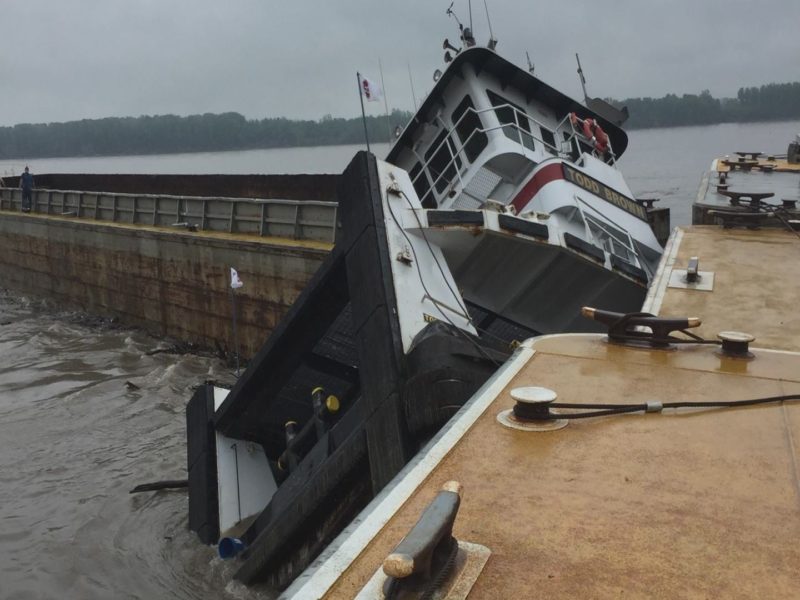Towing vessel incidents investigated by the Coast Guard were down 24% during 2017, according to an annual safety report from the Coast Guard and American Waterways Operators.
The joint National Quality Steering Committee report found there were six crew deaths directly related to towing operations. Two vessel casualties accounted for four of those deaths.
An Oct. 20 explosion and fire on the Bouchard Transportation Co.’s barge B. No. 255 at an anchorage off Port Aransas, Texas, killed crewmen Zach Jackson, 28, of Salt Lake City, and Du’Jour Vanterpool, 26, of Houston. The accident led to a spill of almost 80,000 gals. of crude oil, the largest spill of 2017 that accounted for 95% of spillage last year, the report says.
The Dec. 8 sinking of the Ricky Robinson during a fleeting operation near Memphis, Tenn., claimed the life of Capt. Keith Pigrem, 35, and his stepson, deckhand Anquavious Jamison, 19, who were working on the 66’, 1,400-hp pushboat, part of the Wepfer Marine Inc. fleeting operation. Two other drowning deaths were reported in separate cases.
Another seven crew fatalities on board towing vessels were reported to the Coast Guard. Six of those cases involved medical conditions and the seventh was an accidental overdose, the report says.
The committee uses several metrics to assess overall accident and safety trends in the industry, including crew fatalities per 100,000 towing industry workers, gallons of oil spilled from tank barges per million gallons transported, and the number of towing vessel casualties, both in total numbers and ranked by incident severity.
In 2006 the committee also began tracking crew injuries, so the report includes summary statistics for the calendar years 2006 to 2017. Overall the annual reports portray a much improved safety picture since the late 1990s, despite high-profile accidents like the Port Aransas explosion.
Apart from the Texas spill, the report notes the second and third largest oil discharges were due to crew errors, like a tankerman who discharged liquid from a barge stern compartment.
“Unaware it was oil, he opened the scuppers, allowing 1,800 gallons of Utica crude to spill into the Big Sandy River near Catlettsburg, Ky.,” the report notes. The third case involved 1,500 gals. of heavy fuel oil that spilled Chickasaw Creek, a tributary of the Mobile River in Alabama.
“The tankerman misaligned valves to load HFO into one tank, instead of three, resulting in the tank quickly overfilling,” the report says.
There were 934 towing vessel incidents reported to the Coast Guard in 2017, with 82% classified as low severity incidents. Medium and high severity incidents represented 10% and 8%, respectively. There was a 24% decrease in investigated towing vessel incidents from 2016 to 2017.
Improved reporting has led to fewer low severity incidents being tallied, the committee said, “due to Marine Casualty Reporting Navigation and Inspection Circular (NVIC) 01-15, which clarified reporting requirements.”
“This is allowing investigators to concentrate more effort and greater scrutiny on medium and high severity incidents. Also, changes incorporated into the new version of the Coast Guard’s data collection system, the Marine Information for Safety and Law Enforcement (MISLE), allows for a more detailed and accurate classification of data. Investigators are becoming more familiar with the new documentation features in the new MISLE system and vessel casualty reporting is more robust and refined.”
Other sectors in the maritime industry have seen a similar decline in reportable incidents – down 45% since the NVIC 01-15 circular clarified requirements, the report notes.
.




